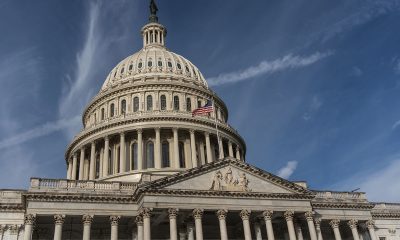By Magaly Muñoz
The California Department of Justice’s Race and Identity Profiling Advisory (RIPA) Board published its seventh annual report this week. This report analyzes millions of vehicle and pedestrian stops conducted in 2022 by 560 law enforcement agencies in the state.
Established in 2016 as a result of Assembly Bill (AB) 953 written by former Assemblymember Shirley Weber (D-San Diego), RIPA aims to eliminate racial and identity profiling and foster diversity and racial and identity sensitivity within law enforcement.
The 223-page report features the board’s view of pretextual stops where the stops result in resisting arrest charges, looks at the impact police unions have on law enforcement accountability and protocols for law enforcement training on racial and identity profiling, and examines youth interactions with police both in and out of schools.
According to the report, Black individuals were stopped by police 132% more frequently than expected, based on a comparison of stop data and residential population. Black individuals made up 12.5% of stopped people, with Hispanic/Latino making up about 43% and white making up 32.5% of people.
The most frequently cited reasons for stops across all race and ethnic groups were traffic violations and reasonable suspicion that the person was engaged in criminal activity.
Under the new law AB 2773, law enforcement officers are required to state the reason for a traffic stop or pedestrian interaction before asking any other questions. The only exception is when there’s an imminent threat to life or property. This change, which took effect on Jan. 1, 2024, aims to reduce pretextual stops and de-escalate police-civilian interactions, according to Assemblymember Chris Holden (D-Pasadena), the bill’s author.
The RIPA report also made several recommendations to agencies, district attorney’s and the legislature including developing policies that require officers to notify supervisors prior to making an arrest for resisting arrest and have supervisors review any case where resisting arrest is alleged in a report; develop policies requiring district attorneys to review body-worn camera footage in any case that involves a resisting arrest allegation prior to filing charges; adopt internal policies that prohibit arrest and filing of charges against individuals if the alleged resisting stems from a disability.
In a statement released Wednesday, Attorney General Rob Bonta commented on the guidance that RIPA has given to the state that has allowed for transparency and critical steps to repair the public trust.
“The annual collection of the RIPA stop data is making California communities safer by directing thoughtful and reflective reform,” said Bonta.
But not everyone is in agreement that the data presented by RIPA is accurate or informative.
The Peace Officers Research Association of California (PORAC), an organization that represents 80,000 public safety members and over 950 associations, said the report “does not capture enough information for the Board to even satisfy California’s own legal standard for determining racial profiling.”
PORAC enlisted the help of Texas State University professor Dr. Brian Withrow to examine the data from the report which he found “inadequate in many ways.”
“The best data sets are those that recognize the complexities associated with an issue and provide robust qualitative information. However, the data the RIPA Board collects and analyzes — despite the breadth of its reach — is woefully inadequate as a measure of potential racial profiling in routine operations,” Withrow said in a statement.
The organization held a forum on Thursday morning to discuss the counter-report of the analysis of RIPA’s data report.
At the forum, Withrow argued that the data collected made it impossible to assess racial profiling because officers were not asked about the perceived race of drivers before the stop, only after. He also pointed out that the data does not capture context of police stops and officer actions, uses inaccurate population benchmarks because demographics of an area’s driving population are different than the overall population, does not accurately attribute the cause for a search, and does not differentiate between officer-initiated contacts and calls for service.
Withrow recommended that other factors such as age, gender, and context of the communities where officers are assigned should all be taken into consideration along with race. He proposed that members of the RIPA Board sit down with police officers one-on-one to better understand why they might make a stop and how they proceed once they do.
Magaly Muñoz
A graduate of Sacramento State University, Magaly Muñoz’s journalism experience includes working for the State Hornet, the university’s student-run newspaper and conducting research and producing projects for “All Things Considered” at National Public Radio. She also was a community reporter for El Timpano, serving Latino and Mayan communities, and contributed to the Sacramento Observer, the area’s African American newspaper.
Muñoz is one of 40 early career journalists who are part of the California Local News Fellowship program, a state-funded initiative designed to strengthen local news reporting in California, with a focus on underserved communities.
The fellowship program places journalism fellows throughout the state in two-year, full-time reporting positions.



 Activism4 weeks ago
Activism4 weeks ago
 Activism4 weeks ago
Activism4 weeks ago
 Alameda County4 weeks ago
Alameda County4 weeks ago
 Activism4 weeks ago
Activism4 weeks ago
 Alameda County4 weeks ago
Alameda County4 weeks ago
 Activism4 weeks ago
Activism4 weeks ago
 Activism4 weeks ago
Activism4 weeks ago
 Activism3 weeks ago
Activism3 weeks ago



















































